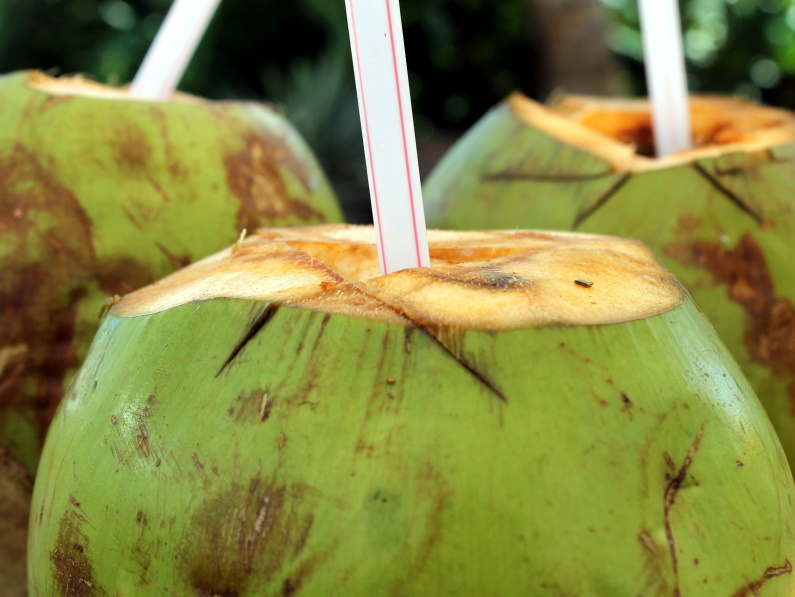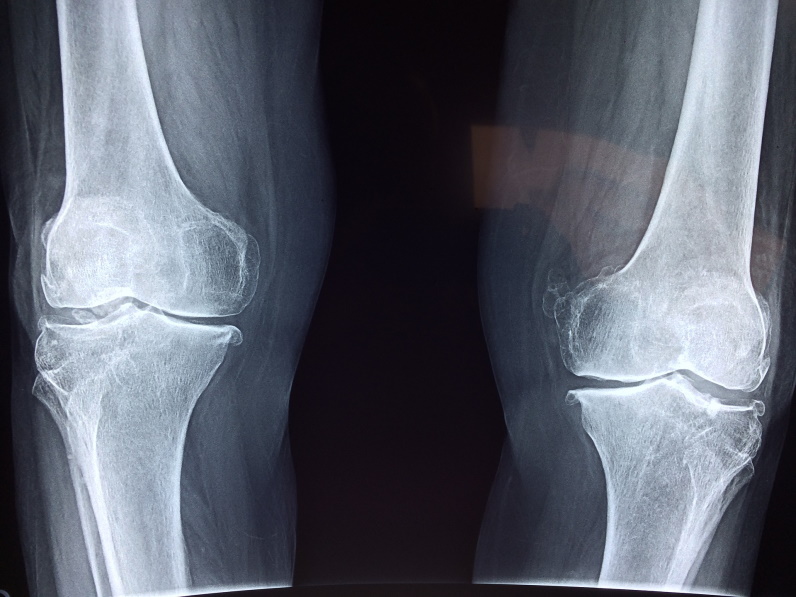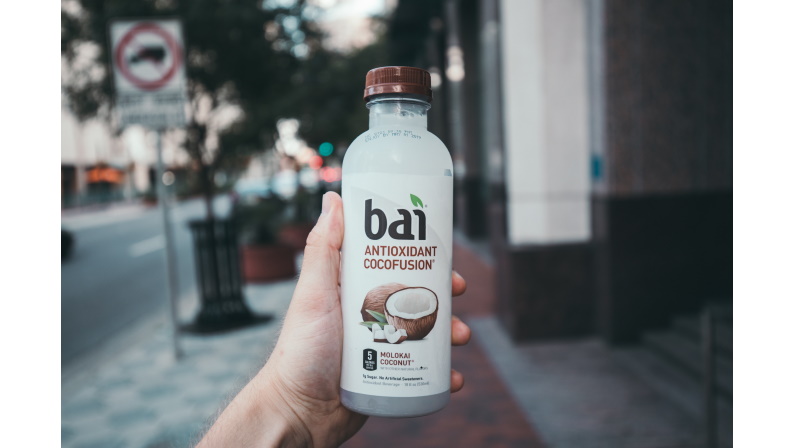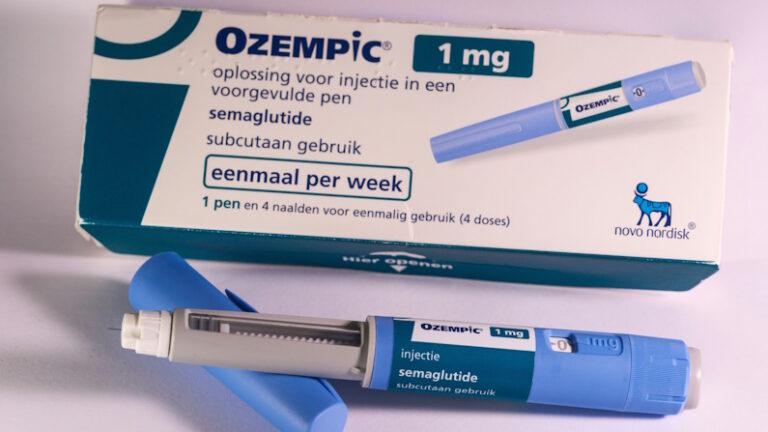
Is coconut water a fad, similar to kombucha, acai berry, or CBD oil? It’s hard to tell when one product demonstrates efficacy for one or two people who swear by it. After a few months, the good news that coconut water can make you healthier spreads like wildfire, and everyone eats it up. As far as coconut water goes, there are certainly some benefits. It’s no magical cure for our inevitable morbidity, but its got some perks.
Let’s take a look.
Coconut water is simply the clear liquid inside of green coconuts. These coconuts are known as Cocos nucifera and are comprised of 95% water. Coconut water so far has been known until now for its powerful ability to replenish the body with electrolytes, vitamins, and minerals. Here’s is the exact nutrient level content:
List of Coconut Water Nutrient Levels
One cup (240 ml) of coconut water has 46 calories, and:
- Potassium: 17%
- Sodium: 11%
- Calcium: 6%
- Vitamin C: 10%
- Magnesium: 15%
- Manganese: 17%
- Carbs: 9 grams
- Protein: 2 grams
- Fiber: 3 grams
- Sugar: 11 grams
One of the most significant nutrients in coconut water is potassium since most individuals do not consume it on a daily basis. Coconut water has as much potassium as a banana and plays a vital role in electrolyte balance in the body. It also counters the effects of sodium and helps to prevent muscle cramps. There is some sodium present in coconut water but its not much of a concern unless there’s already too much sodium elsewhere in the diet.
There are small amounts of magnesium and calcium in coconut water, but these are important nutrients. They help with muscle contraction, bone density, and energy production. Magnesium moves calcium and potassium into muscles for contraction and therefore prevents cramps and spasms, a significant concern in active people.
The great thing about coconut water is that it has antioxidants that counter the oxidative stress created by exercising. Fresh coconut water has a good amount of antioxidants, whereas the processed kind won’t do much.
Lastly, coconut water has amino acids (the building blocks of protein) as well as cytokinins which play a role in aging and fighting cancer. More research is needed in determining how beneficial the cytokinins are though.

Diseases That Coconut Water Fights
Blood Pressure and Heart Disease
A 45-day study showed that 2.5 liters of daily coconut water consumption reduced blood cholesterol levels, liver fat, and triglyceride levels. The effect was so great that statin drugs for cholesterol levels were not much more powerful.
Researchers have also been studying coconut water’s effects on systolic blood pressure. There is some significant benefit to the high potassium content in coconut water because it plays a role in lowering blood pressure. The potassium may accomplish this by causing vasodilation and also improving endothelial cell health, key factors in great systolic blood pressure levels.
These effects on blood pressure and cholesterol levels help play a role in overall reduced risk of cardiovascular disease. Another interesting finding was that researchers noticed antithrombotic activity (or the prevention in the formation of blood clots) in coconut water.
Cancer
Because of the antioxidants, researchers claim that coconut water has the potential to fight cancer. There are a lot of antioxidant-rich amino acids and proteins present like albumin, globulin, glutelin-1, and glutelin-2.
Furthermore, cytokinins help to reduce cancer cell growth. Together, these elements demonstrate anti-inflammatory and therefore, anti-cancer properties.
Diabetes
Thanks to magnesium in coconut water, some individuals have experienced improved blood sugar levels. The magnesium increases insulin sensitivity.
Research also shows a decrease in oxidative stress. Both high sugar levels and oxidative stress are associated with diabetes. Researchers believed that coconut water reduces hemoglobin A1C, therefore causing better blood sugar levels.
Kidney Stones
Kidney stones are crystals that form in urine when people accumulate too much calcium and oxalate. Drinking coconut water may help reduce the occurrences of kidney stones by preventing the crystals from sticking to the insides of the kidneys and urinary tract.
Thanks to the antioxidants, there is also less formation of oxalate in general.

Other Ways Coconut Water Can Make You Healthier
Coconut water has been used in Ayurvedic medicine for centuries. Individuals who follow this practice have consumed coconut water for better digestion and urination.
On a universal level, It’s a great sports drink alternative because it’s lower in calories and artificial sweeteners. The main benefit of coconut water is rehydration.
Because coconut water has tannins, it can be beneficial when fevers are present. The tannins help to reduce inflammation and therefore bring down temperatures too.
Coconut water’s calcium helps strengthen both the bones and the skeletal system overall. Speaking of bone structure, the magnesium in coconut water is packed full of minerals that play a vital role in both DNA and RNA synthesis, and protein synthesis.
Coconut water’s powerful anti-inflammatory effect is also due to its salicylic acid content.
The Bottom Line
Coconut water can make you healthier since it is great to drink during exercising for the nutrients and electrolytes that help replenish the body. Be sure to get good quality coconut water without added sugars. Remember, the fresher the coconut water, the more benefits it’ll have.
While research has shown quite a bit of health benefits and preventative measures for disease, a lot more remains to be known for sure about this liquid.







